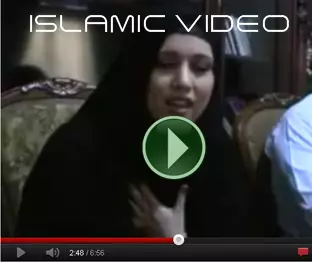Dubai: Regardless of where the sun is setting, a sense of community and family during Ramadan is what Muslims cherish the most.
And, in all corners of the world, Muslims are fasting and enjoying the large gatherings for iftar, group prayers at the mosque, and late night suhoor meals.
For German Aliya Hadler, it is only her second Ramadan ever, but it is an experience she’s enjoying immensely. The 33-year-old Dubai resident has been living in the UAE for four years. She converted to Islam two years ago.
Though she never experienced Ramadan in her home country, Hadler fills her Ramadan in the UAE with lectures and Quran reading whenever she can.
She said: “Normally, I’m at home reading the Quran. For iftar, I go with my friends to the mosque or the Islamic learning centre. We have nice group iftars with lots of other Muslim sisters from all over the world.”
At the Islamic learning centre, Hadler said that they end their fast with water and dates, but afterwards they enjoy an array of food from other traditions as well as Arabic foods such as mandi (a rice and meat dish).
“We break our fast with water and dates and then we pray maghrib or sunset prayer together. We all go to the mosque together and afterwards listen to a nice lecture. Sometimes at the learning centre we even invite non-muslims for iftar because it is a very nice and welcoming atmosphere for everyone to experience,” Hadler said of her Ramadan routine.
Similarly, Noor Spalekova from Slovakia is filling her iftars with traditional Ramadan treats.
While her job as a flight attendant dictates where she ends her fast such as Germany, Rome and Venice, she still tries to have water and dates first at iftar, as well as a cup of coffee.
The five-year Dubai resident converted to Islam over three years ago after experiencing the Muslim community first hand in the UAE.
She said: “I had many Muslim friends around me and I liked how they lived. I did my research and I learned what Islam was really about since people have a lot of misconceptions.”
For Palestinian-American Yasmine Kablaoui, the majority of her Ramadan experiences were in the US, where she lived with her family for 20 years.
She said: “Ramadan for us there was family oriented just as it is here in the UAE, but sometimes you’re in school or at work and you end your fast wherever you are. On Fridays or on the weekends, we would go to the mosque to have iftar and pray with the rest of the Muslim community in our area.”
Since moving to Sharjah over a year ago, Kablaoui likes that she can experience the Ramadan atmosphere anywhere in the UAE.
“You get to experience much more of the traditional Ramadan atmosphere, with Ramadan tents for example. There’s also much more family here as well,” said Kablaoui.
Family is another common Ramadan factor for Khalisah Stevens, a Malaysian-American Muslim in Dubai.
“When we were in Malaysia, fasting was very family-centric and traditional. We would all cook our main suhoor meal together. The night market in Malaysia was quite popular so we would end our fast with food from there,” Stevens said.
After breaking their fast, Stevens said that the family would gather to pray together or go to the mosque for prayers. Afterwards, they would return home to enjoy homemade suhoor.
When Stevens is with her family in Dubai, they maintain their Ramadan traditions as well.
She said: “We spend it at home, where my mum and I cook Malaysian or foods such as chicken satay or falafel. We’d end our fast, pray together, and come back home for suhoor — all as a family.”
SOURCE: gulfnews.com














